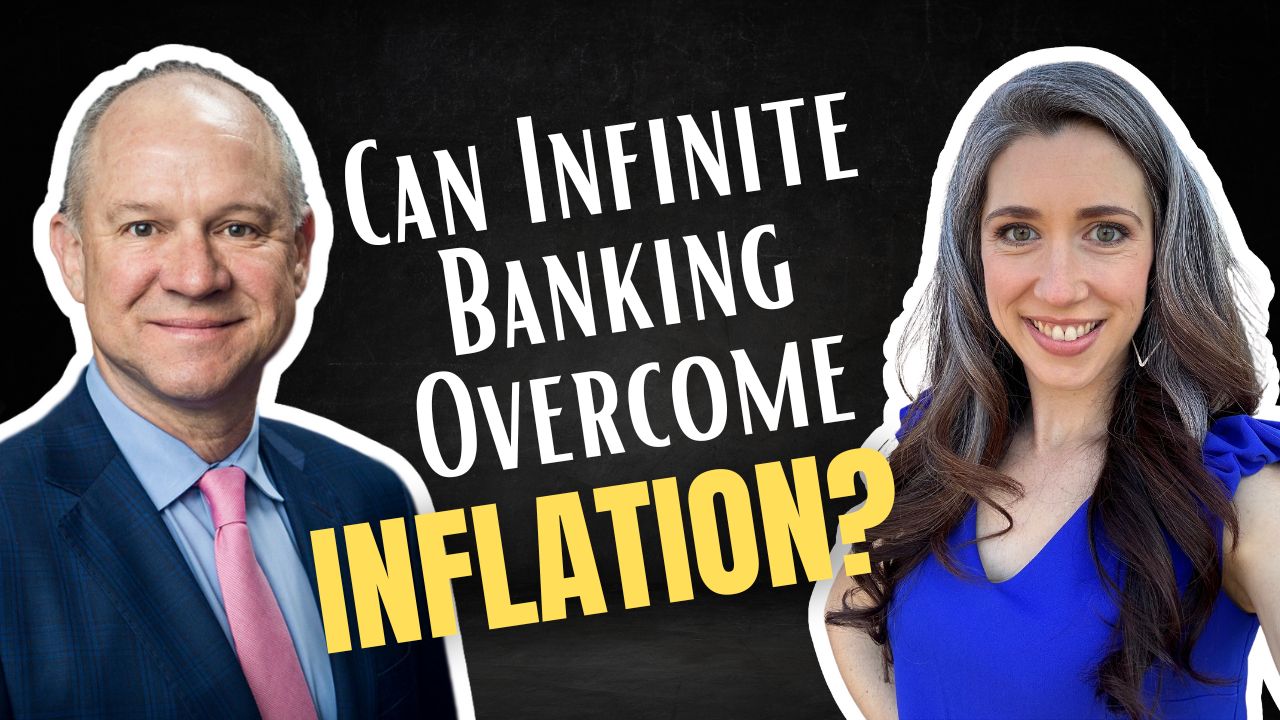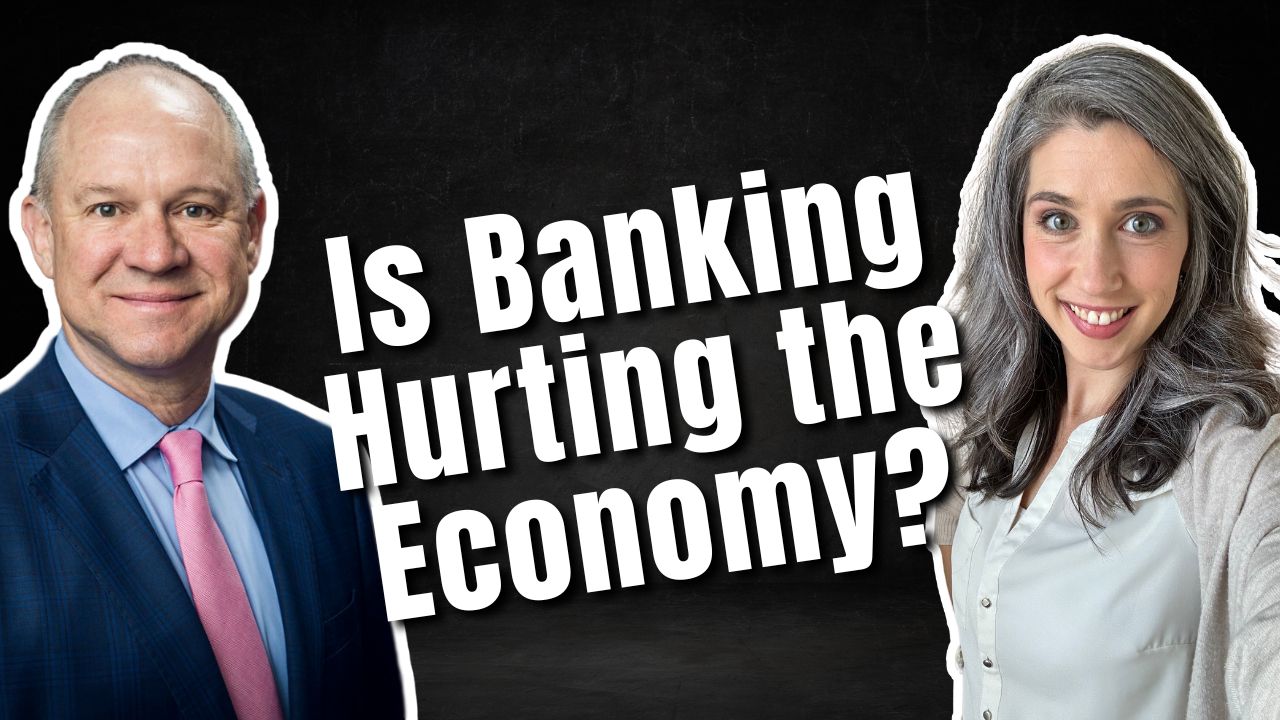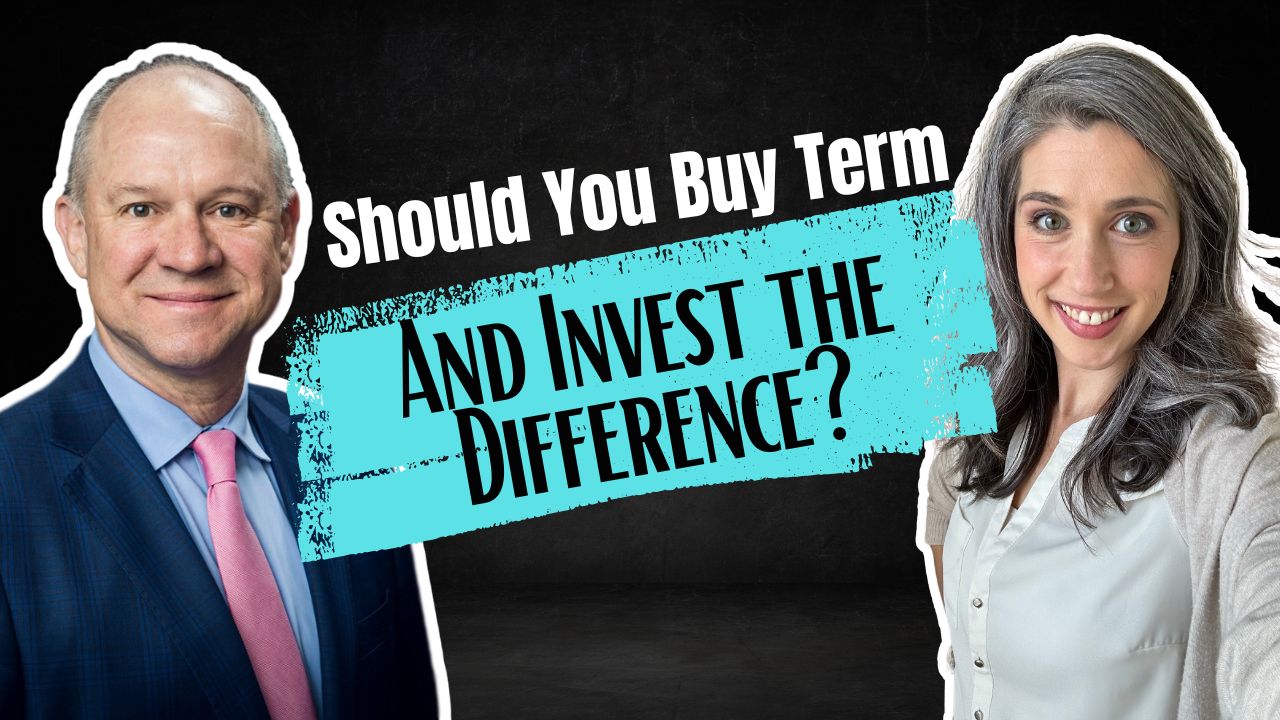
Can Infinite Banking Overcome Inflation?
If inflation is on your mind, you’re not alone. With three years of high inflation figures and your pocketbook saying it’s even higher every time you buy groceries, how will your money keep up? Can Infinite Banking overcome inflation and provide a long-term solution?
Today, we discuss a listener question about how Infinite Banking can be used to combat inflation. We also discuss the five tenants of infinite banking, such as ‘don’t do business with banks,’ how it can help in an inflationary environment, and how life insurance policies are interest rate driven. Finally, we explore stewardship and generational wealth, discussing the concept of ‘human life value’ and how clever insurance strategies can be leveraged to benefit future generations.
Podcast: Play in new window | Download (Duration: 42:21 — 48.5MB)
Subscribe: Apple Podcasts | Spotify | Android | Pandora | RSS | More
Table of Contents
How Does Inflation Happen?
[1:47] “Inflation is simply the increase of the money supply. And people argue about this all the time, but Milton Freeman said that only the government can increase the money supply, so the government is solely responsible for inflation.”
When the money supply increases too quickly, there’s an oversaturation of money compared to goods on the market. This raises demand for goods, while supply is low, and prices increase to account for that. When prices for certain products or goods increase, this tends to affect the prices of other correlated goods.
Can Infinite Banking Overcome Inflation?
We recently had a very thoughtful question from a podcast listener that we wanted to address. It’s such a powerful question that we think you’ll benefit from reading it in his own words, as follows:
“Thanks for the content. I’m of the belief that inflation is not transitory (I’m 44 yrs old and I remember when a candy bar was $.50). I am a student of the Austrian School of Economics and only think that inflation will be exponentially worse as the U.S. monetary policy continues to stay the same (increasing the money supply) as that is their only option unless politicians want to be responsible which we know they won’t be.
A method that has worked in the inflationary environment since 1971 when gold was dropped completely is to borrow money and pay it back in cheaper dollars (think 30-year mortgage on a house).
I love the thought of IBC in normal monetary times but I just can’t wrap my head around how a death benefit (30 years from now (ideally)) will be worth much as prices continue to increase. And I think I would rather borrow from the bank and pay them back with the cheap dollars instead of doing that disservice to myself…..
I just think that the dollar will only devalue more and more and I’m not understanding how IBC has any defense against that. Everything else is great about it in my mind.”
As you can see, he’s put a lot of thought into this topic, and we’re excited to unpack it with you now.
Inflation vs. Death Benefit
There are several reasons that your whole life insurance Death Benefit is still a powerful tool even with inflation. First and foremost, the whole life insurance dividend is interest-driven. This means that as the Federal interest rate rises and falls, so does the dividend. This also affects the guaranteed interest portion, too. This means that you tend to do better than in a savings account alone. Add this to the compounding effect of your cash value, and that slow and steady growth is going to be powerful.
Remember, too, that with PUAs as your Cash Value grows, so does your Death Benefit. The two are intrinsically linked since the Cash Value represents the equity of your Death Benefit. You could start with a DB of $1 million and end up with several million by the time you pass, or your policy endows.
Remember, too, that the whole time you have your insurance, the banking function is all within your control, not the bank’s control. This can give you access to financing and opportunities you wouldn’t get from the bank. And when you die, your family receives a payout that they otherwise wouldn’t receive. If that date occurred within a few years of you buying insurance, that would certainly outpace inflation.
[19:05] “When you have a properly structured whole life insurance policy that is performing as efficiently as possible for you, one of the keys is to have your dividends purchase paid-up insurance. Which means that because of that feature, you have a continually rising Death Benefit.”
Overcoming Inflation in a Tax-Free Environment
You must also consider how taxes erode wealth. If all of your capital is tied up in tax-deferred assets, you may appear to have more money. Yet with every withdrawal, a hefty tax bill comes due. This can make your account dwindle much faster than anticipated. So what seems to beat inflation, doesn’t.
Contrast that with whole life insurance, which can be accessed tax-free while you’re living, AND passed the Death Benefit to heirs tax-free. The Net wealth transfer to your heirs could potentially be much more significant, even if it’s technically less because there are no taxes due.
Premium Improves with Inflation
Our listener also mentioned something interesting in his question about paying for assets with “cheaper” money. For example, when you buy a home, the actual dollar cost of your mortgage stays the same for 30 years. Yet as money inflates, the value of those dollars decreases. So by the end of your loan, you’re paying with “cheaper” dollars.
This is true, and it also applies to everything—inflation doesn’t discriminate. Your insurance premium is also a fixed payment, which means that over time, it’s going to feel like less and less to you. However, the value of your asset is always increasing with interest and dividends.
Mortgages and whole life insurance premiums are actually two of the best assets for this principle because they have fixed-level payments over a long period of your life. There are few other things that behave this way.
Family Banking – The Next Generations
And, at the end of it, when you create this banking system with assets you control, you leave a legacy to your family at the end of the day. If you seek all your financing from the bank and save elsewhere, you lose that ability to transfer wealth. And that wealth can be used to seed the next generation’s policies.
[32:52] “So if you could purchase life insurance on yourself, have that leveraged up Death Benefit—so it’s more than you paid in—pay out to your kids, they use that [Death Benefit] to purchase as much life insurance as they can get. Then their Death Benefit that pays out to your now grandchildren is going to be higher than what they paid in premium. And if you just continue to use that capital to seed future generations’ policies, there’s a tremendous advantage because the starting capital is going to be way higher each time.”
This gives your kids, your grandkids, and many generations in the future a pool of capital to access while they’re still young. You’re helping your family out into the future, and that’s thinking long-term.
[35:40] “Let me give a shout out to one of my buddies, Tony Fine. He used to always say money doesn’t cause character flaws, money exposes character flaws.”
Book A Strategy Call
Do you want to coordinate your finances so that everything works together to improve your life today, accelerate time and money freedom, and leave the greatest legacy? We can help! Book an Introductory Call with our team today https://themoneyadvantage.com/calendar/, and find out how Privatized Banking, alternative investments, or cash flow strategies can help you accomplish your goals better and faster. That being said, if you want to find out more about how Privatized Banking gives you the most safety, liquidity, and growth… plus boosts your investment returns, and guarantees a legacy, go to https://privatizedbankingsecrets.com/freeguide to learn more.
Fractional Reserve Banking Creates Inflation: Infinite Banking is the Solution
Inflation causes everything to feel more expensive, so what do you do to protect your money from inflation? Today, we’ll explore the link between inflation and fractional reserve banking, and how Infinite Banking is the sound money solution. A thought-provoking journey through inflation, fractional reserve banking, and the revolutionary concept of infinite banking. This episode…
Read MoreBuy Term and Invest the Difference: Here’s What’s Wrong
Are you trying to decide which type of life insurance to buy? You want to protect your family in case something happens, so how do you do it best? Whole life insurance is often rejected as expensive and a poor “investment,” while mainstream opinion leans in favor of the “buy term and invest the difference”…
Read More


